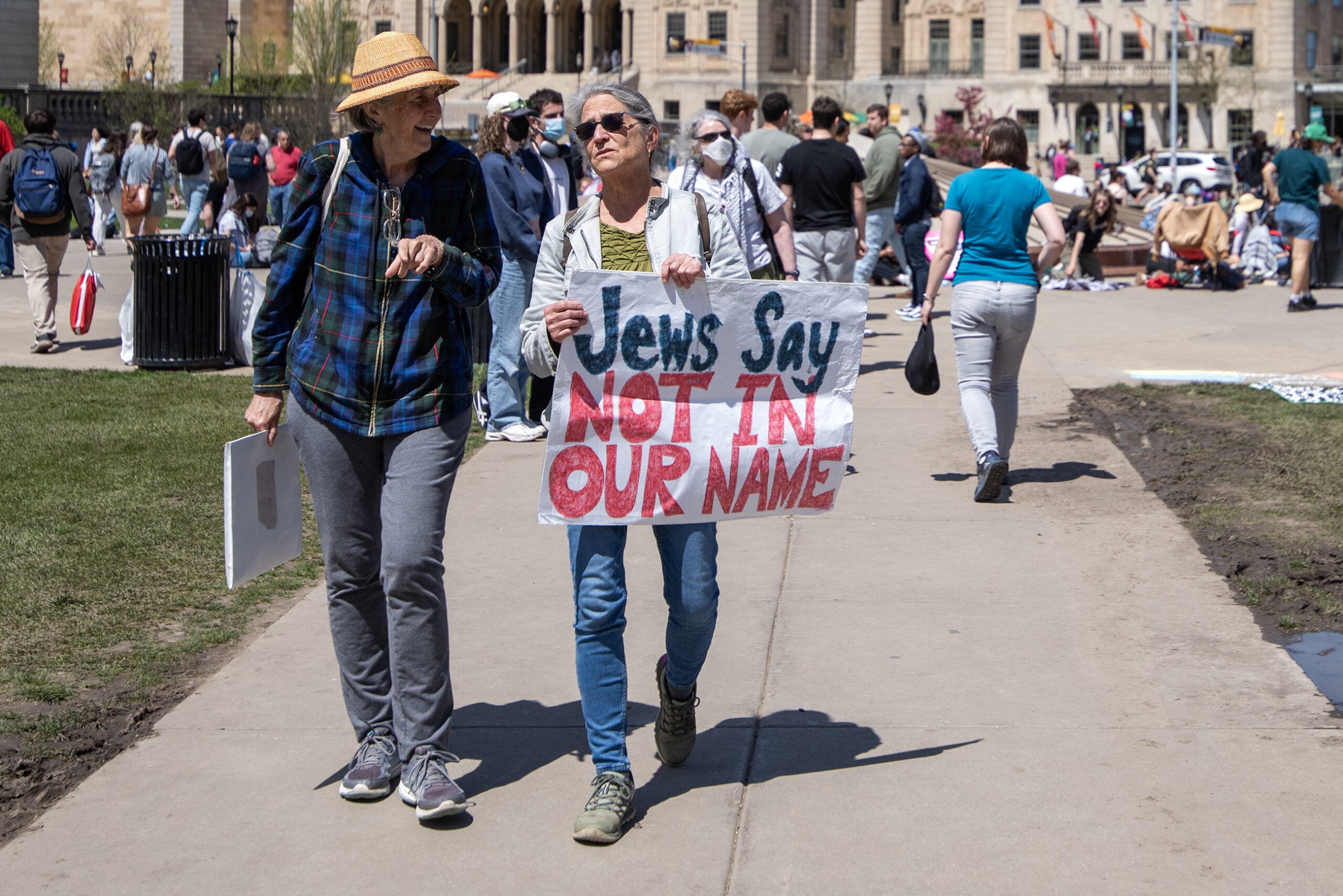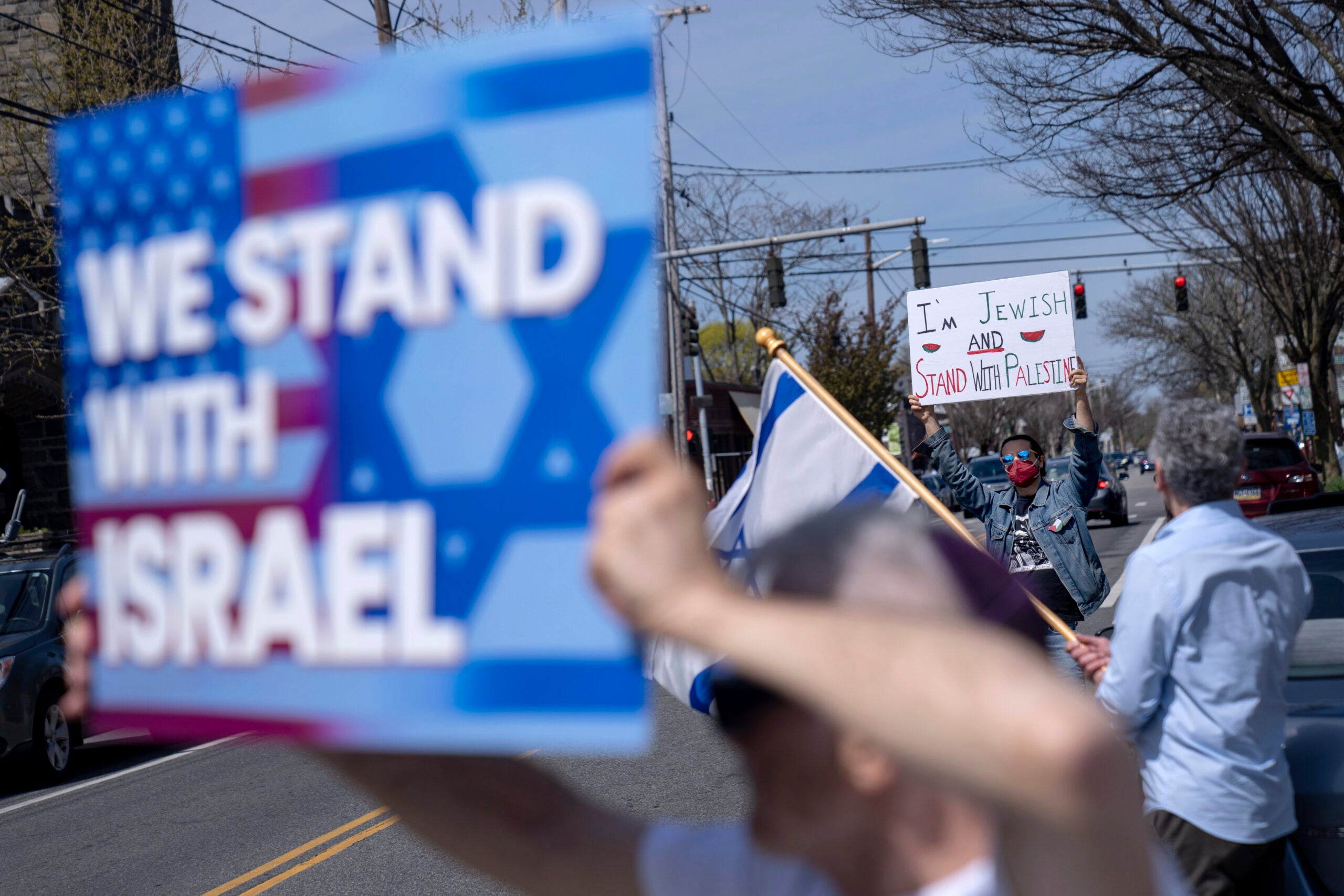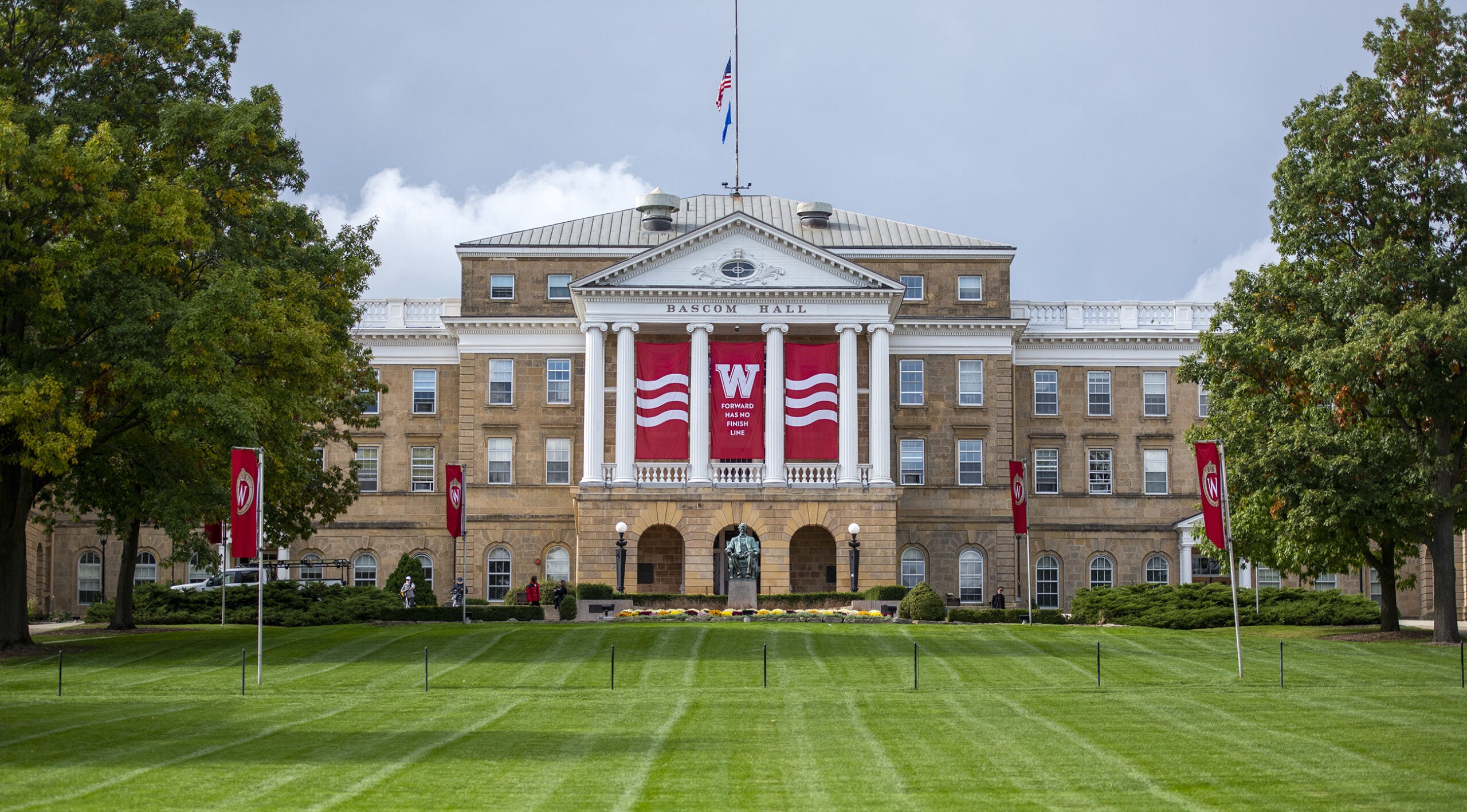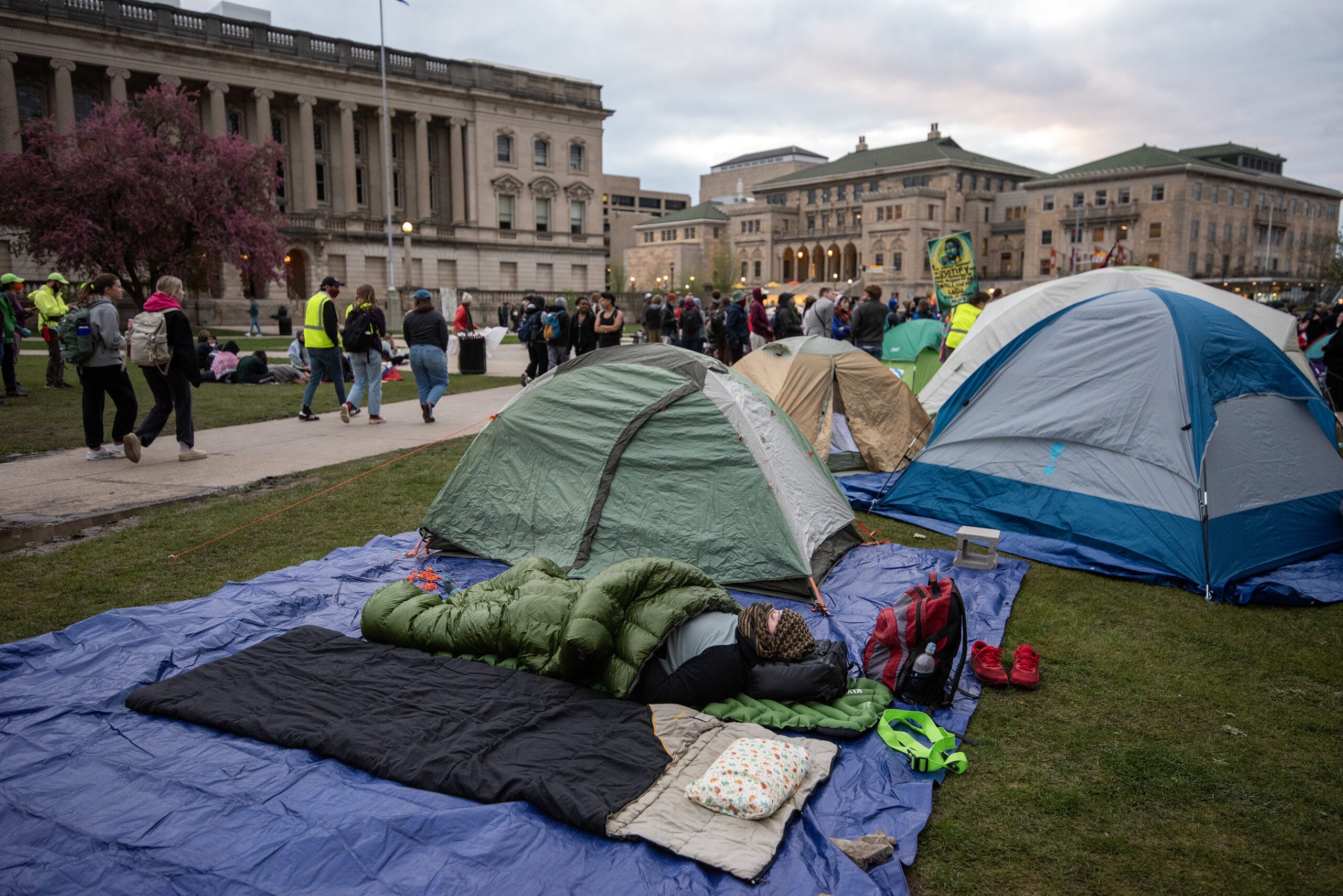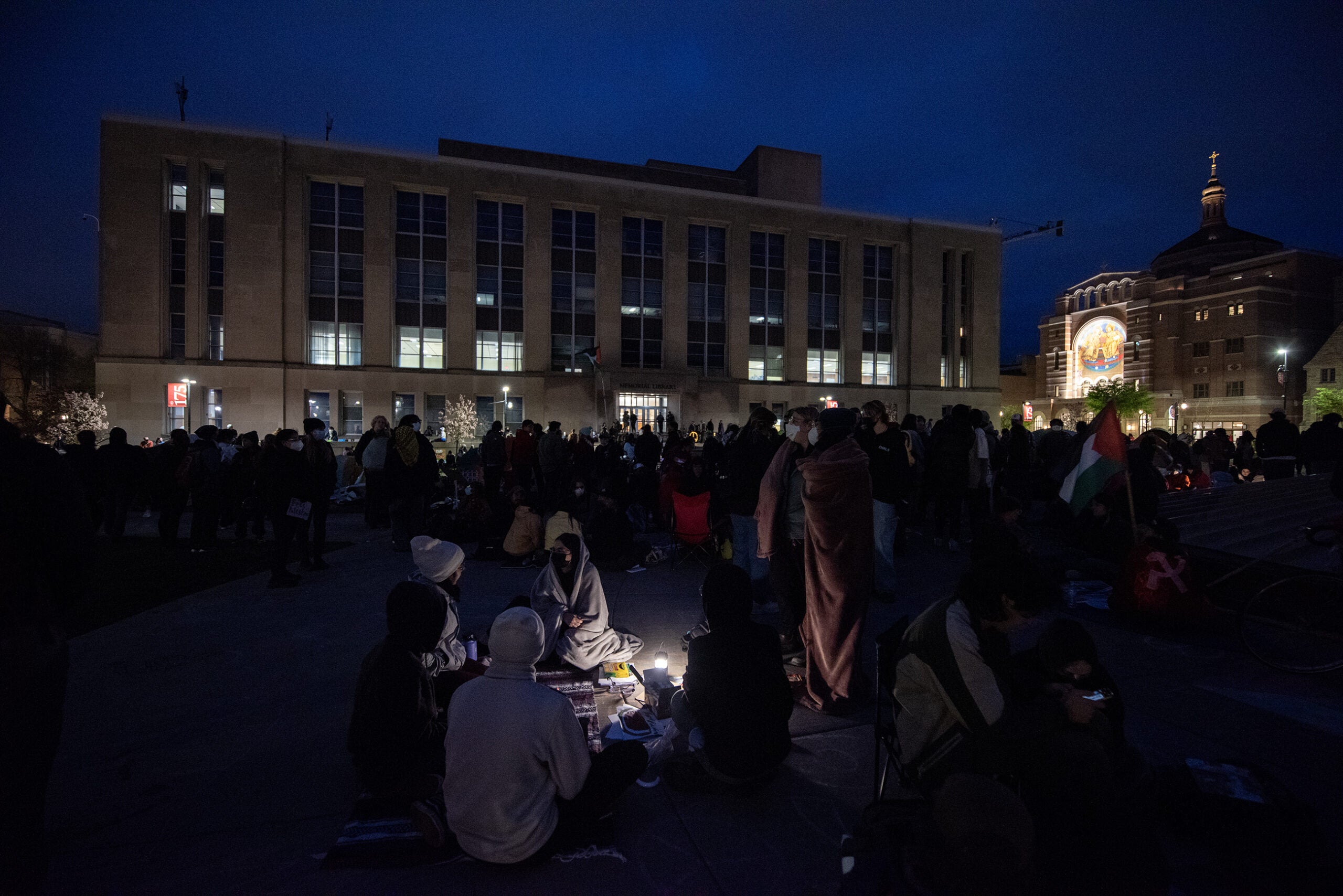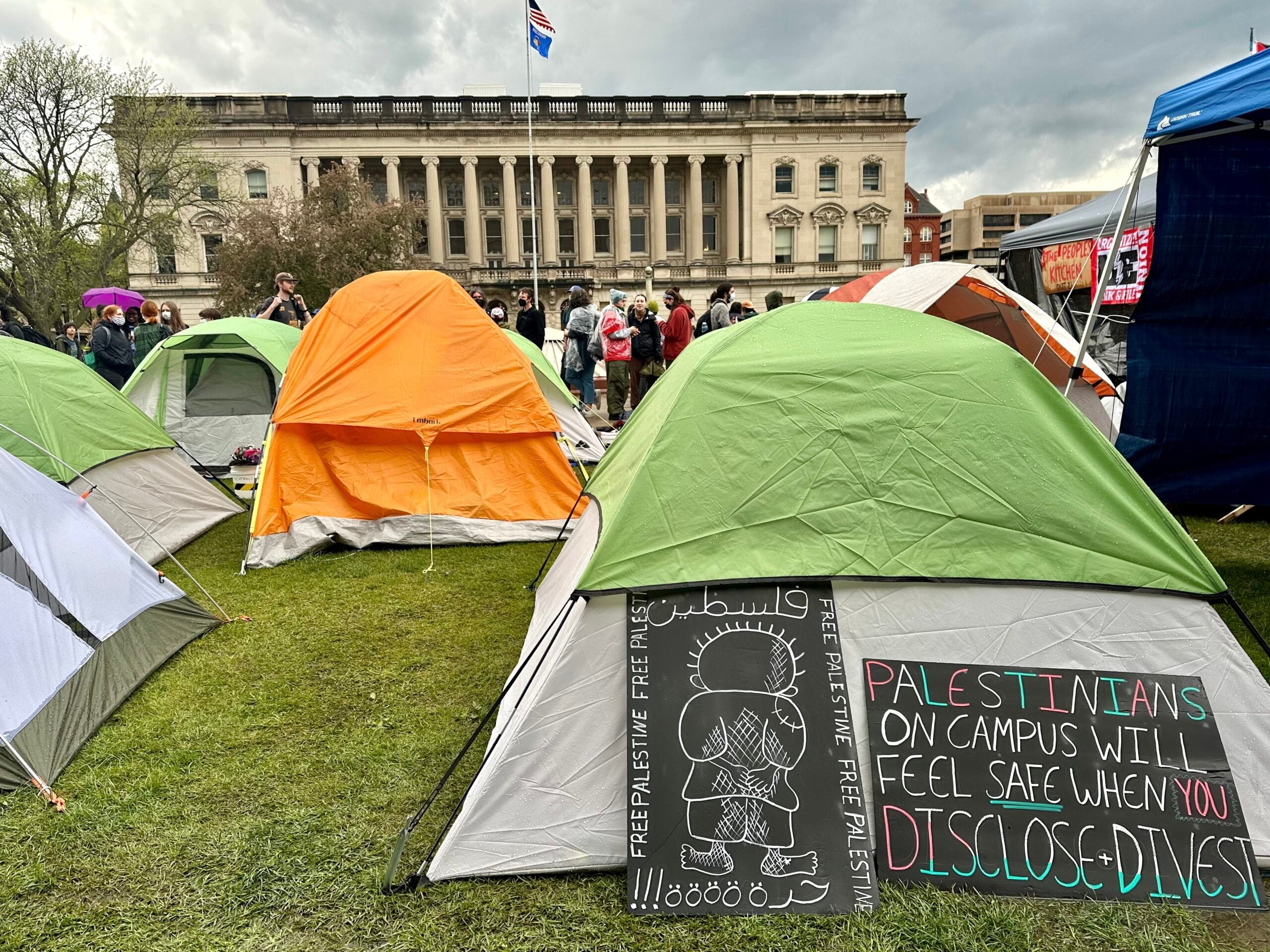As pro-Palestinian encampment protests entered their second day at the Universities of Wisconsin-Madison and Milwaukee Tuesday, some Jewish students and organizations expressed concern about what the protesters’ message meant for them.
But the protests also exposed a division within the student body, as some Jewish students participated in the encampment, saying they felt compelled to speak out because of their heritage.
The Madison and Milwaukee campuses’ centralized Jewish student organizations, known as Hillels, both posted statements of concern for student safety.
News with a little more humanity
WPR’s “Wisconsin Today” newsletter keeps you connected to the state you love without feeling overwhelmed. No paywall. No agenda. No corporate filter.
The UW-Madison Hillel said on social media Monday night that it would open its doors to Jewish students who felt uncomfortable, unsafe or wanted community.
“No student’s right to be safe, to pursue their education, and to be proud of their Jewish and Israeli identity should ever be compromised,” reads a post on the group’s Instagram page. “When a cause aligns with terrorist organizations taking pride in the protests and actions, and when language calls for violence against an entire identity, religion and people — it becomes hate and discrimination.”
The Milwaukee Hillel called on the university administration to “do more to support Jewish students on campus.”
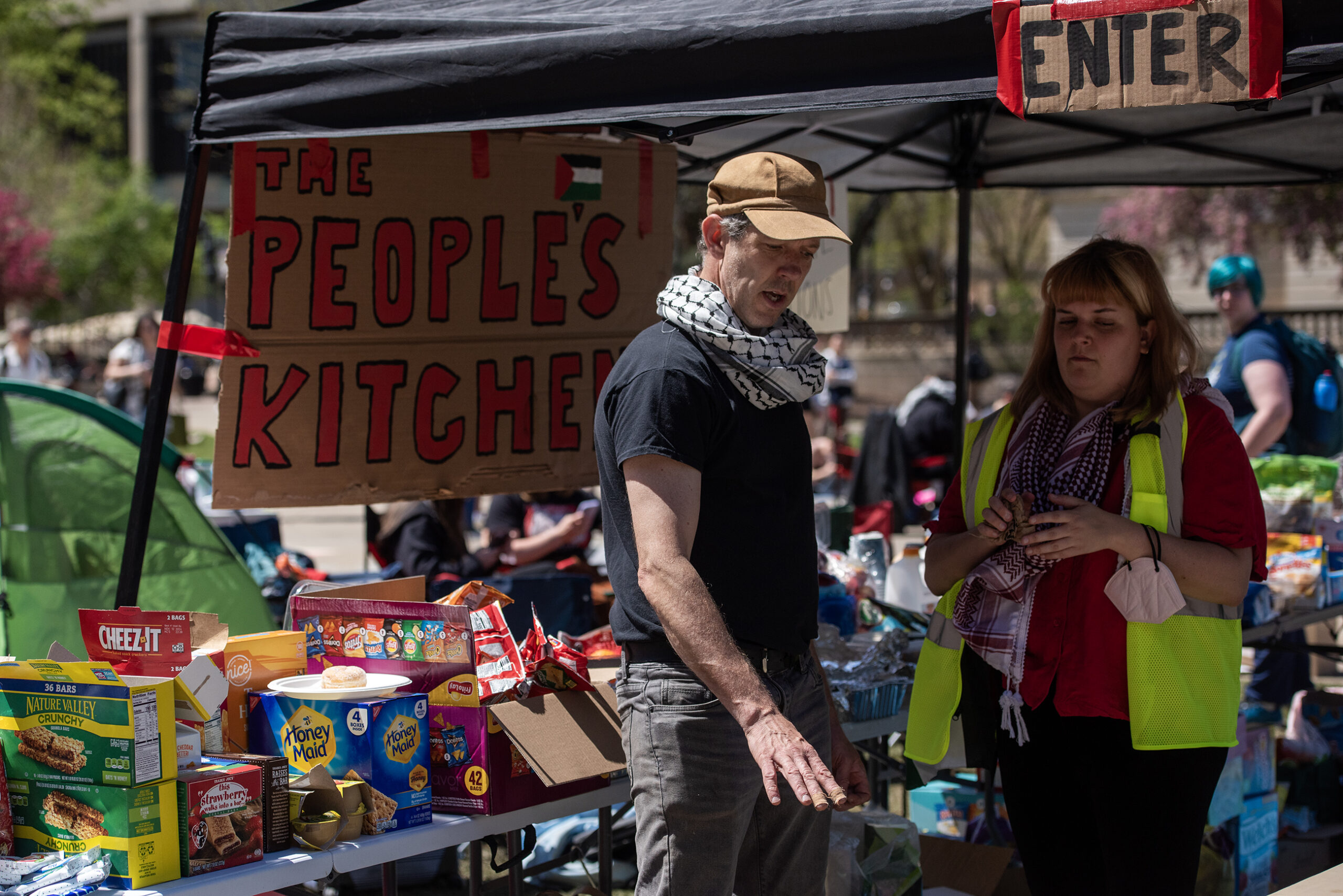
The arrival in Wisconsin of a student movement that has gripped other campuses for more than two weeks coincides with the Jewish holiday of Passover. WPR’s requests for comments from the Hillel offices were met with holiday out-of-office responses.
The protesters at the Madison encampment say they’re protesting Zionism, not Judaism.
“We’re concerned that a lot of pro-Palestinian speech is deemed to be antisemitic, when in fact it is simply anti-Israel or anti-Zionist ideology,” said Asifa Quraishi-Landes, a professor at the UW-Madison School of Law and part of a group of faculty supporting the protesters.
She said that conflating those two ideas means students “expressing solidarity with Palestinian human rights” have faced dangerous and sometimes physical consequences.
At the launch of the UW-Madison protest on Monday, which began with chanting and speeches before students erected tents on the iconic Library Mall, some Jewish students came out in support of the movement.
Some held Jewish-themed signs such as “Not in our name” or “Genocide is not a mitzvah” — the Hebrew word for a commandment or good deed.
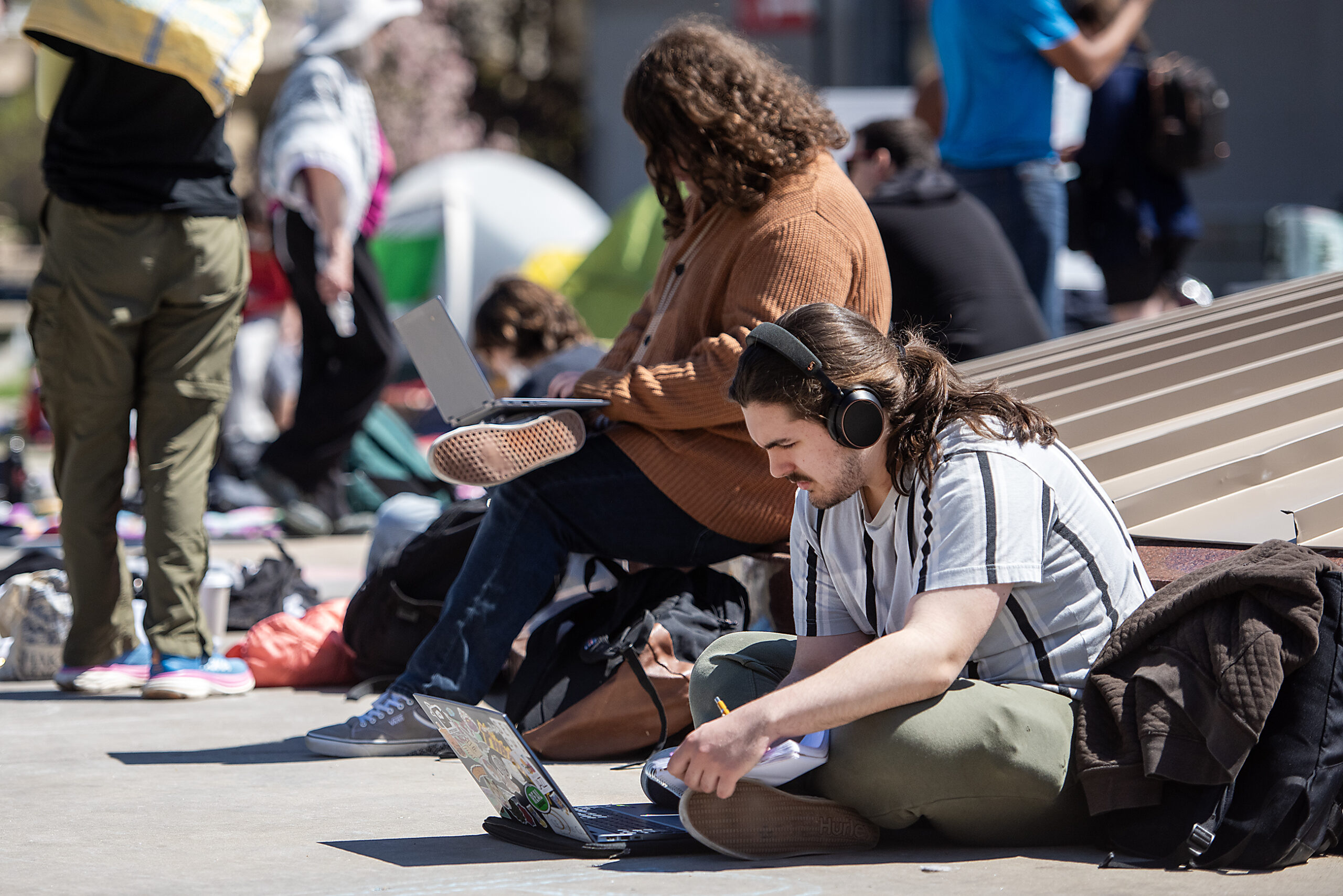
Encampments enter second day
The UW encampments remained peaceful through Tuesday afternoon. In Milwaukee, students played catch and read books around about 30 tents. Some had established a barrier of tables and plywood, while campus police cars hovered nearby.
In Madison, students used laptops and painted signs under a blue sky and held a teach-in during the afternoon. Hundreds of students streamed by on their way to other spots on campus. Some wore graduation paraphernalia, a reminder that final exams and commencement are around the corner.
That calm atmosphere contrasted with with a quiet fear that some parents of Jewish students said they felt from afar. Jill Grover, a New York City resident whose daughter, Jordyn, is a freshman at UW-Madison, said she is angry that the school is allowing the encampment to continue.
“This is helpless because we’re far away from Madison, Wisconsin, and we can’t step up and help our kids,” she said. She disagreed with the argument that anti-Israel ideology can be separated from antisemitism.
“Anti-Zionism is the elimination of the Jewish state. You eliminate the Jewish state, where do those people go?” she said.
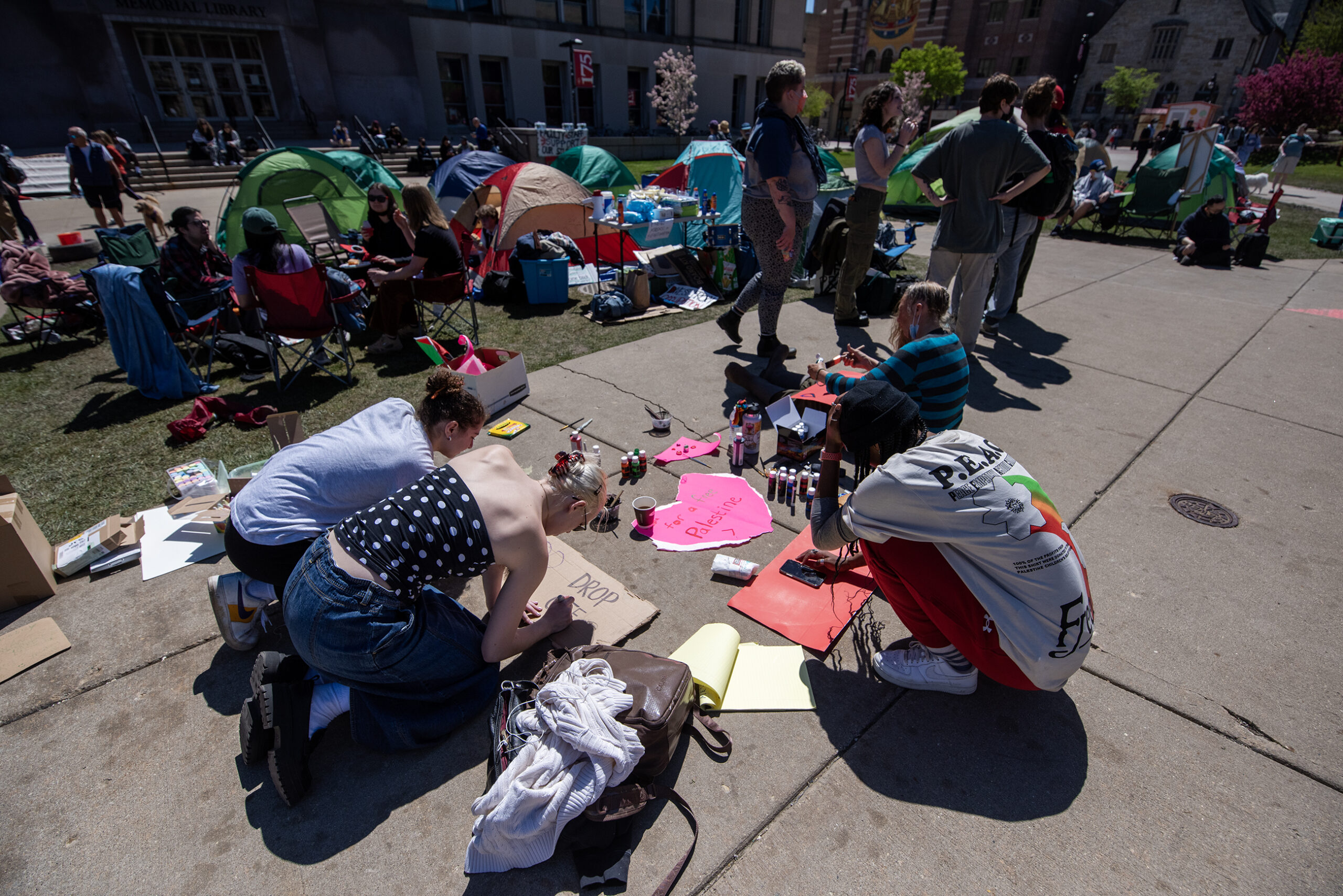
But one Jewish student at the encampment, who declined to share their name for safety concerns, roundly disagreed.
“As a Jewish student of color on this campus, I feel completely safe,” they said. “What makes me feel unsafe is that the university refuses to acknowledge that Israel is committing terrorist acts against Palestinians.”
That student also said their Jewish heritage was part of what they brought to the protest.
“I have family members who have died in the Holocaust. And I think they would be proud if they were alive today to see me standing up to the ongoing genocide against Palestinians, and really making sure that when we say ‘Never again,’ we actually mean it,” they said.
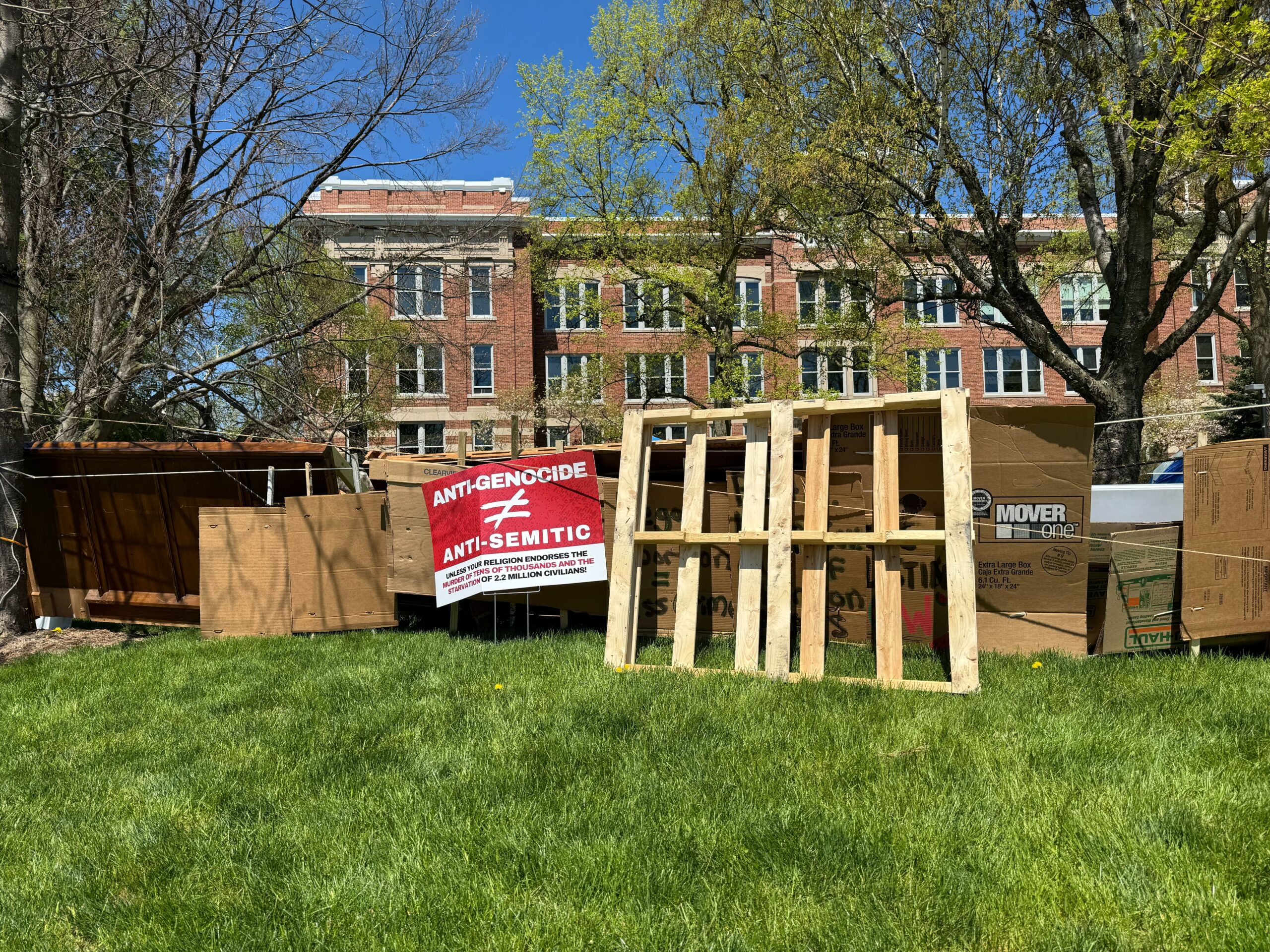
A divide among communities
Those conflicting perspectives reveal divisions among Jewish communities on the Israeli-Palestinian conflict, some of which have become amplified in the six months since Oct. 7, 2023. That’s when Hamas militants entered Israel and killed about 1,200 people.
Israel responded with military actions that have to date killed about 33,000 people, according to Gaza health officials, initiating what human rights groups call a “humanitarian catastrophe.” Gaza officials say more than 20,000 of the dead have been women and children. The Israeli military says about 13,000 Hamas fighters have been killed.
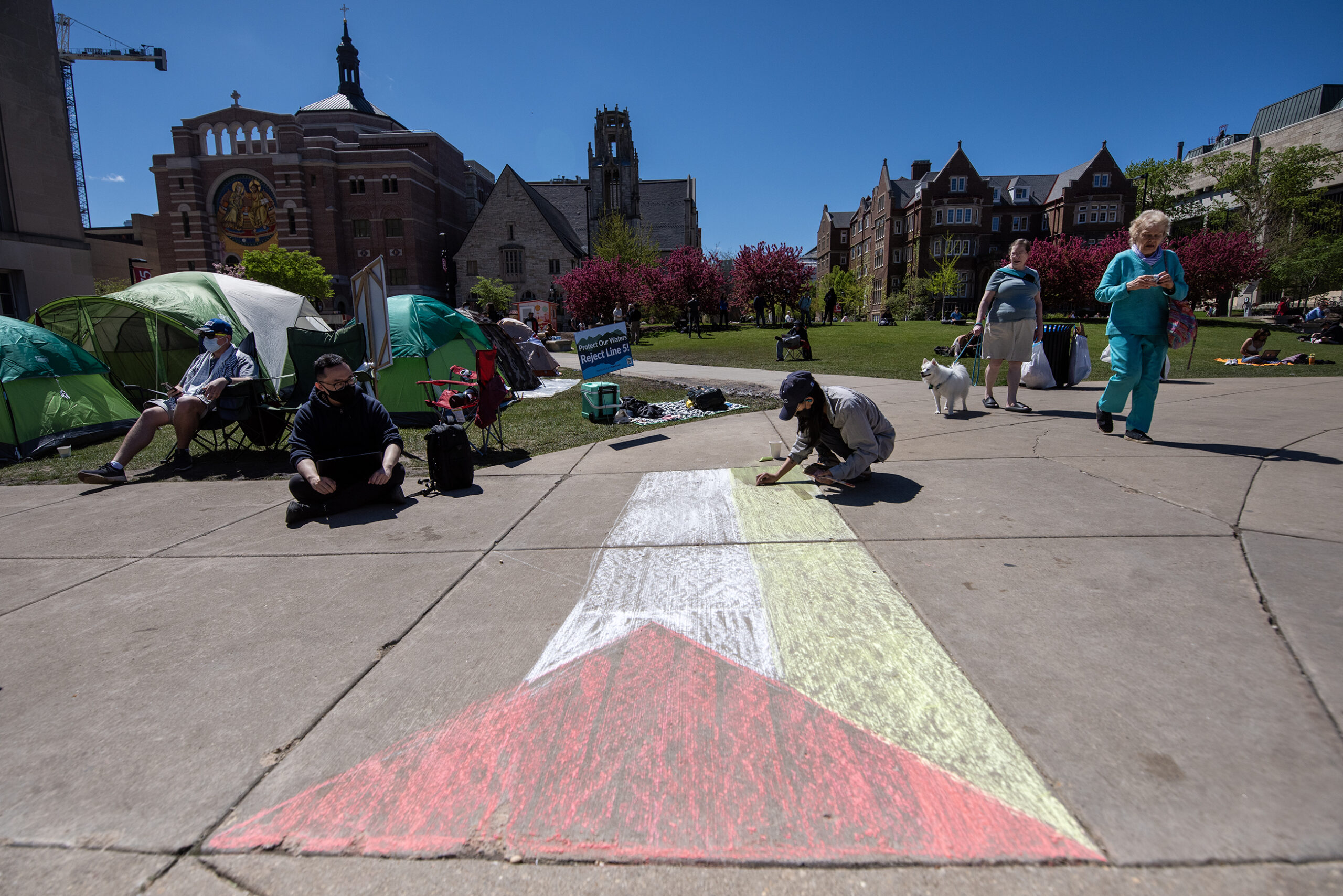
According to the Pew Research Center, there’s a generational divide when it comes to support for Israel’s response to the Hamas attacks.
Just over half of Jews under 35 call Israel’s military actions “acceptable,” and 42 percent call it “unacceptable.”
Those differences in belief contribute in part to how students experience the presence of anti-Israel protests, chants and slogans. For example, some Jewish supporters of Israel say the chant “From the river to the sea” is a call to wipe out Jewish residents of the region, while some pro-Palestinian activists say it’s a call for liberation.
On Monday, a student at Columbia University — the first campus to set up an encampment, two weeks ago — filed a lawsuit against the school for failing to provide a safe educational environment for Jewish students.
Meanwhile, some students — including the Jewish supporter of the UW-Madison encampment who did not share their name — argue that focusing on the nature of the protests, rather than their underlying calls for universities to withdraw financial support for Israeli companies and programs, is a distraction.
It’s unclear how long students on both campuses will remain in the encampments. While both demonstrations have remained peaceful, the administrations at both schools have said that camping on campus is prohibited.
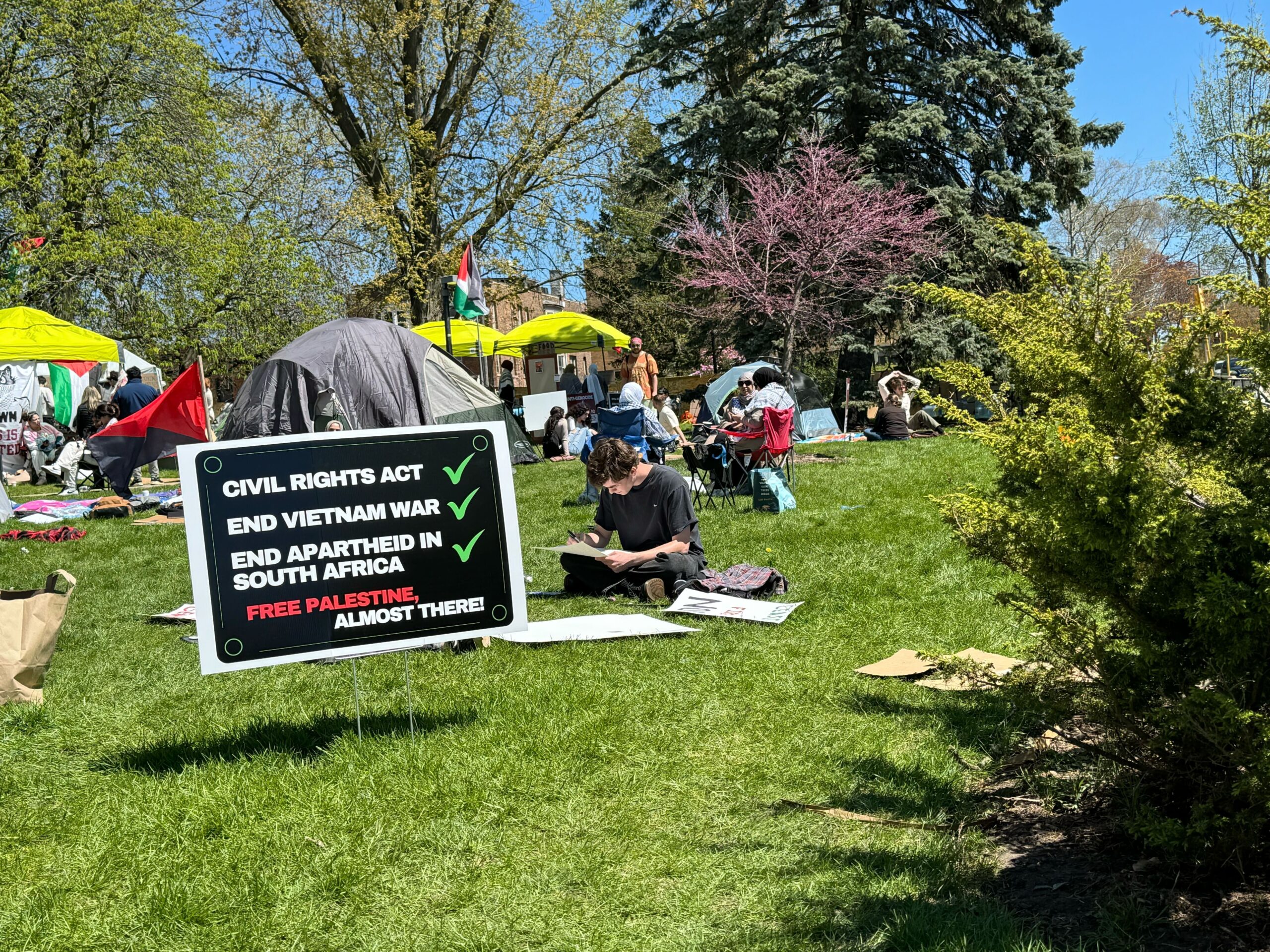
Editor’s note: Evan Casey contributed reporting to this story.
Wisconsin Public Radio, © Copyright 2025, Board of Regents of the University of Wisconsin System and Wisconsin Educational Communications Board.

